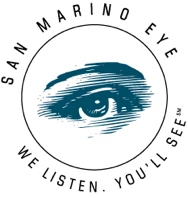Five (5) Compelling Reasons
Why ‘Self-Pay’ Benefits You
1. Your Time is Valuable. You Cannot Not Afford to Pay Cash.
You have a business to run. You have work to go to. You simply have a modern, busy life. So while others willingly trade their time waiting for hours in an ophthalmologist’s office, you would rather self-pay and get prompt care. Not because you can afford it. But because you cannot, not afford it.
With “Obamacare”, waiting times will only increase as more people sign up and are forced to see doctors in ever narrower networks. Deductibles are already obscenely high, co-pays ridiculously expensive. Cash, almost cheap.
2. You Expect Nothing Less Than Quality, Personalized Care!
Do you sometimes feel that your doctors pay more attention to their computers than they do to you? Knowing what you now know about in-network providers that should no longer surprise you. After all, with each exam you, the patient, may be requesting a diagnosis and treatment, but the insurance company is demanding that all these little boxes on the computer screen be filled out or checked. What happens if the doctor doesn’t get to your requests? You’ve experienced the answer to that already – the hand on the door followed by an empty space where your doctor was standing just a moment ago. What happens to doctors who don’t attend to the multiple demands of your insurance company? Simple. They don’t get paid. Who do you think is going to get more attention from these preferred providers? You’ve already experienced this conflict. You already know the answer.
Within the Medicare and Commercial Insurance system, an ophthalmologist’s time is largely eaten up by many hours of administrative work, claiming reimbursements and playing bureaucratic head games. Time which should be spent actually seeing you, is wasted performing administrative work.
An ophthalmologist who is out of the insurance network frees up at least 30% of his time previously dedicated to insurance work. He is then able to devote all this time and energy back to you. And because the number of patients an out-of-network ophthalmologist sees is limited, you can expect prompt service, unhurried time with your doctor, and undivided attention.
3. You Want Your Doctor to Serve You. Not Your Insurance Company.
Preferred Providers do not serve you. They serve your insurance company. And that is the sad truth. One cannot have two masters.
Every in-network doctor is bound by contract to follow the rules and regulations of insurance companies – which treatments can be reimbursed, how much can be charged, which exams can be performed and how they are to be performed. If your insurance heavily influences all these, and more, who do you think is effectively dictating your care?
When you co-pay, you co-share your doctor with the very companies whose primary objective is to spend as little as possible on your care. When you self-pay, you can expect to receive the best treatment recommendations personalized to your needs, untainted by the demands of insurance companies. Self-paying affords you unbiased, personalized care.
It is only when you self-pay that your ophthalmologist can truly serve you, and only you.
4. You Want to Be Informed of the Latest Treatments. “Covered” or Not.
New glaucoma treatments are now available that can reduce eye pressure, and can even totally eliminate drops for some patients. One of the safer, more effective glaucoma treatments is called Canaloplasty. You probably wouldn’t have heard about it as many insurance companies refuse to cover Canaloplasty despite strong evidence of its benefit. In-network ophthalmologists rarely discuss this option. Why bother if it’s not covered by your insurance. But if retaining your vision is very important to you, or if you are frustratingly sick of taking drops, you would want to at least know about it. Wouldn’t you?
5. You Can’t Buy Back Lost Vision
No amount of money can buy back lost vision. And, some vision lost from diseases such as glaucoma cannot be regained. A typical in-network ophthalmologist might see 40-60 patients each day. Do the math. In an eight hour work day that’s 8-12 minutes per patient (including completing the required insurance paperwork)! Eye diseases can have subtle findings that are easily missed with brief, hurried examinations. Communicating how best to protect or save your vision takes time – time that’s just not present if your ophthalmologist has only minutes to spend with you. Your eyesight is a precious gift. You cannot afford to tolerate a hurried, compromised, or overbooked ophthalmologist.
Of course, self-paying your ophthalmologist does not guarantee competence. But it does buy your doctor the time and the freedom to exercise good medical judgment, unfettered by third party (insurance company) meddling.
Self-paying will likely be more expensive than your co-pay in terms of dollars spent.
But how much is your vision worth?
But…Isn’t It Unethical For Ophthalmologists
To Accept Payment Only From Their Patients?
